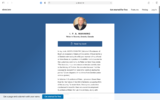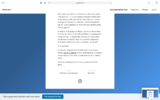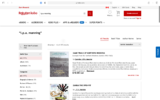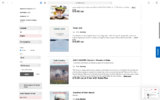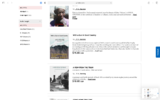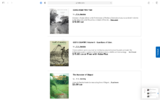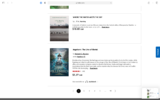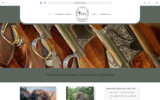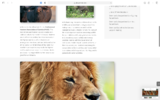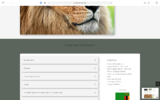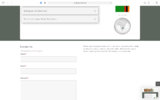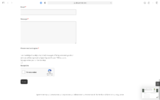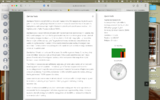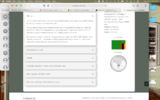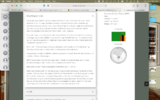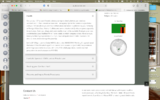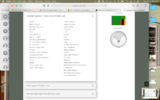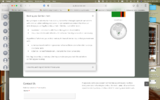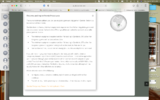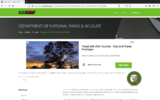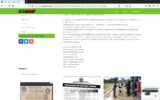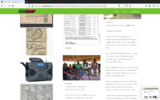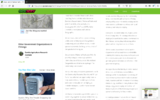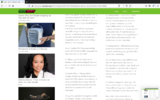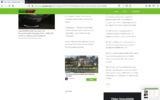- Joined
- Oct 1, 2007
- Messages
- 13,319
- Reaction score
- 9,595
- Website
- www.africahunting.com
- Media
- 5,597
- Articles
- 321
If you notice that anything in this article needs to be updated or anything is incorrect or incomplete please help us keep it current by letting us know.
ZAMBIA Hunting Information

 Hunting Zambia
Hunting Zambia
The history of Zambia is closely linked with that of its neighbor, Zimbabwe (formerly known as Rhodesia). In 1953 the British government created the Federation of Rhodesia Nyasaland consisting of Southern Rhodesia, Northern Rhodesia (modern day Zambia) and the Nyasaland (modern day Malawi).


In 1959, Kenneth Kaunda founded the party of the United National Independence and unleashed a campaign of civil disobedience, the result of which caused the British to end its "Greater Rhodesia" endeavor. The Federation was dissolved and Zambia gained its independence in 1964.
The history of modern big game hunting in Zambia is a short one. Zambia only opened for sport hunting in the 1970's while simultaneously creating GMA's (Game Management Areas). In 2001 the Zambian government revoked all licenses previously granted to the safari companies and all hunting stopped. The government then reversed its decision in 2003, hunting licenses were again granted and hunting resumed after a redistribution of the hunting concessions.
Zambia is among those African countries without access to the sea. It is bordered to the south by Mozambique, Zimbabwe and Namibia, to the west by Angola, to the north by the Democratic Republic of Congo and Tanzania and to the east by Malawi.
The vegetation of Zambia consists mostly of Miombo, a kind of glade-forest of trees of various species. In the extreme southern regions there are also some mopane (Colophospermum mopane) forests, one of the more common trees of southern Africa. The mopane wood is one of hardest and heaviest and therefore the most difficult to work with. Zambia also has large areas of grassy savannas as is found in most African countries. Zambia is essentially a high plateau with an average altitude of 3,200 to 4,200 feet (1,000 to 1,300 meters).
In Zambia hunting is permitted in three different types of areas; Game Management Areas, private hunting areas and conservancies. The sum of these areas covers over 6.5 million acres. Most of the hunting areas, the majority of which are GMA (Game Management Areas), are located in the Luangwa valley or in the Kafue plateau region. The others are spread out over the plains of the Kafue, in the region of Bangweueu Lake and western Zambia. All of these territories are non fenced and open.
Elephant hunting in Zambia is allowed. Lions and Leopards are hunted with bait and can be found in almost all areas. As in Zimbabwe, Leopards in Zambia are known for their large size.
There are also large herds of Buffalo (Syncerus Caffer Caffer) in Zambia, some over a thousand head. One typically finds these larger concentrations in the Luangwa valley, but Buffalo are present nearly everywhere in this country.
Zambia is home to a large variety of antelope, including several species endemic to Zambia such as the Black Lechwe (Kobus Leche Smithmani) and the Kafue Lechwe (Kobus Leche Kafuensis). Likewise, the Cookson's Wildebeest (Connochaetes Taurinus Cooksoni) is found only in the Lungwa valley. In addition to these rare species, Zambia boasts a healthy population of Sable Antelope (Hippotragus Niger) with many possibilities for great trophies.
In Zambia one can also hunt the Livingstone's Eland (Taurotragus Oryx Livingstonianus), Lichtenstein's Hartebeest (Alcelaphus Lichtensteinii), Greater Kudu (Tragelaphus Strepsiceros), Bohor Reedbuck (Redunca Arundinum), Sitatunga (Tragelaphus Spekei), Tsessebe (Damaliscus Lunatus), Common Waterbuck (Kobus Ellipsiprymnus), Defassa Waterbuck (Kobus Ellipsiprymnus Defassa), Blue Wildebeest (Connochaetes Taurinus), Chobe Bushbuck (Tragelaphus Scriptus Ornatus), Impala (Aepyceros Melampus), Klipspringer (Oreotragus Oreotragus), Puku (Kobus Vardonii), Oribi (Ourebia Ourebi), Sharpe's Grysbok (Raphicerus Sharpie), Warthog (Phacochoerus Aethiopicus), Bushpig (Potamochoerus Larvatus), Common Duiker (Sylvicapra Grimmia) Hippos and Crocodiles are abundant in most of the rivers and can also be hunted.
In Zambia hunting is done on foot and as the hunting areas are not very rugged, the actual hunting is not especially rigorous. The professional hunters are most often Zambian, white or black, but there are also South African and Zimbabwean PH's and occasionally European ones as well.
The hunting camps in Zambia are usually tent camps. They are large and comfortable and some camps are even quite luxurious. All normally include electricity and some even offer modern communication such as satellite phone. In some private hunting areas the accommodations are permanent lodges and/or bungalows.
Travel to the hunting areas is via Lusaka, the capital of Zambia, by car, but more often by chartered plane since many hunting territories have their own landing strip.
The best time for hunting in Zambia extends from June to November.
 Finding a Hunting Outfitter in Zambia
Finding a Hunting Outfitter in Zambia
The single most important thing you need to do to ensure that you are booking with a good hunting outfitter is check their references. The outfitter should provide you with more than a few references, especially clients who have hunted with them within the last year and you should call many of them.
Click here to check out our Zambia Hunting Reports, a section where you can find or post more detailed Hunting Reports. Or visit our forums where you can interact with other hunters and industry professionals, post questions or read what others are discussing about hunting in Zambia by clicking here.
We are all empowered by learning from each other and we encourage you to make educated decisions based upon honest information and real experience.


Zambia Hunting Areas Map and Satellite Imagery
Click here for Zambia hunting areas map, country and satellite imagery maps.
 Climate in Zambia
Climate in Zambia
Zambia is warm all year round, but has three distinct seasons. Between December and April the weather is hot and wet; from May to August it is cooler and dry; between September and November conditions are hot and dry. Average summer temperatures range between 77D F to 95D F (25D C to 35D C), while in winter the variation increases ranging from 43D F to 75D F (6D C to 24D C).
Although Zambia lies within the tropics, much of it has a pleasant climate because of the altitude. Temperatures are highest in the valleys of the Zambezi, Luangwa, and Kafue and by the shores of Lakes Tanganyika, Mweru, and Bangweulu.
There are wide seasonal variations in temperature and rainfall. October is the hottest month. The main rainy season starts in mid-November, with heavy tropical storms lasting well into April. The northern and northwestern provinces have an annual rainfall of about 125 cm (50 in), while areas in the far south have as little as 75 cm (30 in). May to mid-August is the cool season, after which temperatures rise rapidly. September is very dry.
Daytime temperatures may range from 23D to 31D C (73 - 88D F), dropping at night to as low as 5D C (41D F) in June and July. Lusaka, at 1,250 m (4,100 ft), has an average minimum of 9D C (48D F) and an average maximum of 23D C (73D F) in July, with averages of 17D C (63D F) and 26D C (79D F), respectively, in January; normal annual rainfall is 81 cm (32 in).
Weather Underground provides a very detailed look at current weather conditions, weather forecasts, a history and almanac for predicting average weather conditions during the time while you will be traveling in that part of the world. Click here for Zambia's climate and temperature forecast.
 Zambia Hunting Season & When Hunting is Allowed
Zambia Hunting Season & When Hunting is Allowed
- Hunting Season - No set season but hunting safaris are usually conducted from May through November.
- A hunter must be a client of a registered Zambian safari company.
- Trophy hunting in Zambia is dictated by fair chase regulations and professional hunters are governed by their own code of conduct a sort of mixture of ethics and common sense designed specifically to promote the ultimate safari hunting experience. Failure to adhere to these simple laws can result in the termination of a safari and confiscation of trophies.
- Trophy hunting may take place within the hours of daylight during the hunting season, no hunting is allowed at night and and no hunting is allowed with artificial light.
- The Zambian government strictly controls the minimum number of days for a hunting safari based upon the species being hunted. Above and beyond the government regulations, the hunting outfitter may also impose their own guidelines as to the minimum number of days required to hunt certain species or combination of species.
- A hunting license is issued for a specific number of species in specific hunting areas.
- Classic hunting safaris are full bag hunts which may include Lion, Leopard, Roan Antelope and Sable. The hunter may purchase hunting licenses for as many species as are on the quota for a given hunting period and area.
- Mini hunting safaris limit the hunter to no more than seven animals of different species in a given hunting area and Roan Antelope, Sable, Leopard and Lion are not available on these safaris. Two of each plains game species may be taken on a mini safari.
- There are many combinations to these hunting safaris, for instance it is possible to secure two concurrent mini safaris (at double the concession fee) allowing the possibility of 14 plains game animals to be taken over 14 days. This is especially advantageous to the operators in the Kafue regions where there is a large variety of game species. The hunting of specialized animals such as the Kafue or Black Lechwe will incur the addition of two to three days including traveling. If for example both Leopard and Sitatunga are required during the same safari then this may be sold as an 18 to 21 day hunt and may incorporate two different concessions.
- Hunting from a vehicle is not permitted, though the vehicle can be used to reach the area from where hunting on foot can begin.
- Shooting an animal from a vehicle is not permitted.
- Baiting prior to the start of the hunting safari is not permitted. No bait animal provision within the pricing structure.
- The number of gun bearers and trackers is restricted to three.
Here below are examples of hunting packages endorsed by the Zambia Wildlife Authority (ZAWA):
- A 7 day mini hunting safari can include a Buffalo and/or plains game, quota limit of 7 plains game species.
- A 10 day mini hunting safari can include a Sable or Roan Antelope, quota limit of 10 plains game species.
- A 14 day classic hunting safari is the minimum number of days required to be able to hunt a Leopard, quota unlimited for plains game species with up to two species each.
- An 18 day classic hunting safari is the minimum number of days required to be able to hunt a Lion, quota unlimited for plains game species with up to two species each.
- A 21 to 28 day classic hunting safari is the minimum number of days required to be able to hunt a Lion and/or a Leopard, quota unlimited for plains game species with up to two species each.
You will find information about the bird hunting season in Zambia near the bottom of this page.
 Species to Hunt in Zambia
Species to Hunt in Zambia
Zambia offers over forty-five species for trophy hunting, including four of the big five which consist of Elephant, Lion, Leopard and Buffalo.
Click here to visit AfricaHunting.com complete list of species available to hunt in Zambia.

Shot Placement Guide for the Perfect Shot
Click here to visit our shot placement guide, the most comprehensive shot placement guide of African game online.
 Bowhunting in Zambia
Bowhunting in Zambia
Bowhunting in Zambia started during the 1993 hunting season when the government legalized bow hunting. Zambia shut down sport hunting altogether from 2001 only to reopen in 2004. This country offers tremendous opportunities for bowhunters, and Zambia might be the best place in Africa for Leopard bowhunting and Lion bowhunting, however few operators have the experience to conduct bowhunting safaris, so careful selection of the hunting outfitter is very important.
Zambia does not have an additional bow qualification for professional hunters, however a professional hunter licensed by the Ministry of Tourism and Wildlife is required to be present during the hunt to guide and protect the hunting client.
Bowhunting big five and/or dangerous game, such as bowhunting Leopard, Lion, Cape Buffalo and Elephant is legal in Zambia.
 Importation of Bows & Arrows into Zambia
Importation of Bows & Arrows into Zambia
It is legal for hunters to import bows for bowhunting purposes into Zambia, however check with your bowhunting outfitter as you will require permission above the regular Temporary Firearms Import Permit (TIP) from the Wildlife Authorities.
 Minimum Equipment Requirements for Bowhunting in Zambia
Minimum Equipment Requirements for Bowhunting in Zambia
Zambia does not have any minimum equipment requirements for bowhunting so common sense will apply or here below find the requirements for South Africa.
- Big Game
Bow Kinetic Energy 80 ft/lbs
Arrow Weight 700 grain
(Elephant, Rhino, Hippo, Buffalo)
- Medium Game
Bow Kinetic Energy 70 ft/lbs
Arrow Weight 550 grain
(Kudu, Eland, Oryx / Gemsbok, Hartebeest, Wildebeest, Zebra, Giraffe, Sable Antelope, Roan Antelope, Waterbuck, Tsessebe, etc.)
- Small Game
Bow Kinetic Energy 40 ft/lbs
Arrow Weight 400 grain
(Warthog, Nyala, Springbok, Impala, Blesbok, Duiker, Steenbok, Ostrich, Caracal, Black-Backed Jackal, Game Birds, etc.)
 Minimum Equipment Requirements for Rifle Hunting in Zambia
Minimum Equipment Requirements for Rifle Hunting in Zambia
- Zambia does not have a minimum equipment requirement for rifle hunting plains game and rely on common sense. Caliber in the .270 range will be well suited for some of the smaller plains game in Zambia.
- The minimum equipment requirement for rifle hunting in Zambia is .300 caliber for dangerous game such as Leopard and Lion.
- The minimum equipment requirement for rifle hunting in Zambia is .375 caliber for dangerous game or big game hunting such as Elephant, Buffalo and Hippo.
- Zambia does not require a minimum energy (Eo - muzzle velocity) for calibers used.
 Traveling with Firearms & Ammunition
Traveling with Firearms & Ammunition
Traveling to Africa usually requires taking at least a couple of different airlines as well as departing from several countries whose laws and regulations are constantly changing. And they all have their own rules, regulations and laws for which it is your responsibility to be aware and in compliance with all of them. For this reason you should read the Africa Hunting article on Laws & Regulations for Hunters Traveling with Weapons by clicking here.
 Permits & Importation of Firearms & Ammunition into Zambia
Permits & Importation of Firearms & Ammunition into Zambia
The following section contains the basic information you will need to know, for more detailed information you should read Africa Hunting article on Importation or Transiting Procedures Through Countries with Weapons by clicking here, especially if you are transiting through or traveling to another country.
- Temporary importation of firearms and ammunition into Zambia is NOT free of charge, but the cost is minimal, usually included in the cost of your hunting safari and the process is quick and easy. Should you be traveling with bows and arrows to Zambia, check with your hunting outfitter as you will require permission above the regular Temporary Firearms Import Permit (TIP) from the Wildlife Authorities.
- Your hunting outfitter will send you a form to fill out and return to them so they can arrange for your firearms and ammunition temporary import/export permits months prior to your arrival as required by the government of Zambia. This permit will be based upon the firearm information you provide to your outfitter so it is very important that you carefully consider which firearms you will be bringing with you, as once you have submitted the form you will not be able to change your mind. It is very important that all weapons serial numbers be exactly the same when you arrive as what was issued on your import/export permit. Last minute changes of mind cause more problems regarding gun permits than any other reason. Exact number of ammunition is also important.
- There is a limit of three firearms per hunter that may be imported into Zambia for trophy hunting purposes. However if traveling through South Africa a maximum of two firearms are allowed even if you are just in transit. Some European countries also have greater limitation than Zambia as to the number of firearms which can be brought into their country even while in transit. You should read the Africa Hunting article on Importation or Transiting Procedures Through Countries with Weapons by clicking here.
- No automatic firearms are allowed.
- Semi-automatic firearms are allowed for hunting purposes, however avoid bringing any weapon of military appearance.
- No weapons which fall under military categories such as .308 Winchester (7.62x51mm NATO), please check with your outfitter if you have a questionable caliber.
- There is no limit to the number of rounds of ammunition that may be imported into Zambia for trophy hunting purposes, however common sense should apply and also remember that you may encounter greater restrictions from the airline(s) you are traveling on or country you are departing from or other countries you may be visiting or transiting through. For more information on this topic, read the Africa Hunting article, Laws & Regulations for Hunters Traveling with Weapons by clicking here.
- Only ammunition for the specific caliber(s) you are bringing may be imported.
- Handguns are allowed for hunting purposes, check with your hunting outfitter as you will require permission above the regular Temporary Firearms Import Permit (TIP) from the Wildlife Authorities.
- No crossbows.

Need help traveling to or through South Africa with your guns?
South Africa is the number one hunting destination in Africa and most safari hunters will at least transit through South Africa even if they are not staying in the country to hunt. That's why the services of riflepermits.com are so valuable. They can help you navigate the stressful and cumbersome process of transiting or importing your guns into South Africa making it easy and less time consuming.
riflepermits.com work hand in hand-in-hand with the South African Police Services (SAPS) to provide import/export or in-transit permits for your firearms before you even arrive in South Africa. They will hand deliver your pre-authorized permit to you on arrival and also guide you through the procedure at the SAPS Permit Office making it as hassle free as possible.
They also have rifle storage facilities for those who just want to do a bit of traveling or sight seeing in South Africa as well. They can help make your hunting safari a great experience from start to finish!
For more information visit their website!

Henry Durrheim
riflepermits.com - QUICK & EASY arrival with your firearm in South Africa! We'll meet you and escort you through it...
henry@riflepermits.com
www.riflepermits.com

Professional Hunters Association Zambia (PHAZ)
Professional Hunters Association Zambia (PHAZ) is an important organization, with over 80 members. PHAZ works closely, and has a strong relationship, with both the Ministry of Tourism and Wildlife, the governing authority for hunting operators and professional hunters in Zambia, and the Zambia Wildlife Authority (ZAWA). However it is important to mention that Zambia's hunting outfitters and professional hunters are not required to be members of PHAZ to conduct hunting safaris. Click here to visit PHAZ web site for more information regarding basic hunting laws and regulations and more.
 Safari Hunting Operators Association of Zambia (SHOAZ)
Safari Hunting Operators Association of Zambia (SHOAZ)
No web site
Contact Barry Bell-Cross
P.O. Box 30721
Lusaka, Zambia
(260) 1 239420
gbcross@zamnet.zm
PROFESSIONAL GUIDES & OUTFITTERS ASSOCIATION of ZAMBIA
PGOAZ REGISTERED OUTFITTERS
List of current safari companies in Zambia, with valid leases in respect of Game management areas as well as current operating private areas. Valid as of 21ST July 2024.
PDF at the bottom of this post.
GMAs in Zambia that are open to hunting and will have quota in 2024
• Bilibili Mulobezi
• Chisomo
• Kasempa Lunga Lushwishi
• Lunga Busanga
• Kasonso Busanga
• Lower Luano
• Lower Lupande
• Lundu
• Luembe West Petauke
• Chikwa
• Mukungule
• Mwanya
• Mufunta
• Nyaminga
• Rufunsa
• Sandwe
• Sichifulo
• Tondwa
• TEMBWE Kambombo
Open Game Ranches that are operating
• Munyamadzi Game Ranch
• Kazumba Game Ranch
• Nyamvu Game Ranch
• Nkalamu Game Ranch
• Nyakolwe Game Ranch
• Mbizi Game Ranch
• Ilinda Game Ranch
• Mushingashi Game Ranch, but they only hunt privately.

Zambia Wildlife Authority (ZAWA)
All hunting operators and professional hunters in Zambia, to be legal, must be registered with the Ministry of Tourism and Wildlife who governs Zambia Wildlife Authority (ZAWA). ZAWA contributes to the preservation of Zambia's Natural heritage, ecosystem and biological diversity for present and future generations through the careful conservation of Zambia's wildlife. In 2002 ZAWA leased the concession hunting rights to Zambian registered safari hunting operators for a period of 10 years, these hunting operators are responsible for both managing the Game Management Areas (GMAs) and protecting the interests of the resident communities. To visit Zambia Wildlife Authority (ZAWA) web site click here.
 Zambia Hunting Permits & Licenses
Zambia Hunting Permits & Licenses
The wildlife authorities and the government of Zambia allocates quotas by species to each hunting block or hunting territory on an individual basis.
Your hunting license and permit will be applied for and obtained by your hunting outfitter well prior to your arrival, please check with your outfitter as to the current charges or if the cost of this paperwork is already included in the price of your hunt.
The following is required regarding permits for trophy hunting in Zambia:
- The Zambian government strictly controls the minimum number of days for a hunting safari based upon the species being hunted. Above and beyond the government regulations, the hunting outfitter may also impose their own guidelines as to the minimum number of days required to hunt certain species or combination of species.
- A hunting license is issued for a specific number of species in specific hunting areas.
- Clients are only permitted to hunt animals for which a permit is issued.
- All animals are subject to quota availability.
- Permits must be issued prior to the hunt commencing.
- A separate permit must be issued for each individual hunting client.
- With some exceptions of species available on license, two species of each is allowed. The price of the second animal is half again the cost of the first.
- Classic hunting safaris are full bag hunts which may include Lion, Leopard, Roan Antelope and Sable. The hunter may purchase hunting licenses for as many species as are on the quota for a given hunting period and area.
- Mini hunting safaris limit the hunter to no more than seven animals of different species in a given hunting area and Roan Antelope, Sable, Leopard and Lion are not available on these safaris. Two of each plains game species may be taken on a mini safari.
- There are many combinations to these hunting safaris, for instance it is possible to secure two concurrent mini safaris (at double the concession fee) allowing the possibility of 14 plains game animals to be taken over 14 days. This is especially advantageous to the operators in the Kafue regions where there is a large variety of game species. The hunting of specialized animals such as the Kafue or Black Lechwe will incur the addition of two to three days including traveling. If for example both Leopard and Sitatunga are required during the same safari then this may be sold as an 18 to 21 day hunt and may incorporate two different concessions.
- There is a complex system of fees for Zambia's Game Management Areas (GMA's) and each area incorporates a levy called a concession fee, which as a general rule escalates in scale in Zambia's prime areas. Zambia's Game Management Areas (GMA's) are classed as Prime, Secondary and Depleted. Some hunting operators or professional hunters quote concession fees separately, others incorporate it into the daily rate or as a percentage of the trophy fees, or both.
- It is well worth finding out the classification of the GMA prior to booking and also to research contemporary references as some of our lesser areas do have outstanding hunting for certain species and therefore can prove to be financially rewarding.
- Clients are expected to abide by all Wildlife Hunting Regulations in Zambia.


CITIES Permits & U.S. Fish & Wildlife Service
The importation of some individual sport hunted trophies requires a CITES permit (i.e. African Elephant, White Rhinoceros and Leopard to name a few), you will need to submit an application to the U.S. Fish & Wildlife Service if you are planning to import any of the species on their list. You can download the CITIES permit application forms by clicking here. CITES stands for Convention on International Trade in Endangered Species of Wild Fauna and Flora, visit their web site at www.cites.org.

Shipping & Importing Your Hunting Trophies Back
I highly recommend that when it come to the intricacies of importing your hunting trophies do yourself a favor and hire experts to facilitate the process. Allan Zarach from TROPHY SHIPPERS (www.trophyshippers.com) offers an incredible service at a great price.
TROPHY SHIPPERS is a family owned company and have been in business since 1981. They are a customs brokerage and freight forwarding company that is dedicated to helping hunters quickly and efficiently get their hunting trophies home. They know what your hunting trophies mean to you, because they are a family of hunters themselves. If you have trophies that you need brought back to the United States or are planning a trip to Africa to hunt or anywhere in the world, let TROPHY SHIPPERS handle all of the paperwork, clearances, and shipments for you!
They truly provide an invaluable full service for managing an increasingly more detailed and complex process for the importation of your trophies from start to finish. If you would like to contact them, TROPHY SHIPPERS can be reached at Cell/WhatsApp +1 (847) 927-0101 / Office +1 (630) 595-7300, or via their website www.trophyshippers.com, click here.

 The Safari Planning Guide
The Safari Planning Guide
Click here to visit the Africa Hunting Safari Planning Guide, or click the direct links below to visit the individual articles in this section with many useful resources to help you plan and prepare for your African hunting safari:
- Hunting Safari Preparation Timeline
- Safari Planning Resource Guide
- Why You Should Always Use A Hunting Travel Agent!
- Travel, Medical & Evacuation Insurance
- Why You Should Use A Hunting Trophy Shipping & Importation Specialist!
- What You Need to Know About Packing
- Clothing & Footwear List
- Personal Items & Toiletries List
- Hunting Gear List for Rifle Hunters
- Hunting Gear List for Bow Hunters
- Travel Documents & Money
- Tipping Guide
 Camouflage
Camouflage
Camouflage clothing is allowed in Zambia during the actual hunt. I would advise that it only be worn during the hunt and not in town or for travel.
 How to Get There
How to Get There
A majority of international hunting clients will fly directly from their country of origin into South Africa on a major international airline, many of which offer a route to Johannesburg (Tambo International Airport - JNB). A less traveled, although still popular route, is through any major European city to Johannesburg. Both routes then require a short flight to get to Zambia's capital Lusaka or the city of Livingstone.

Travel Agent Specializing in Hunting Clientele
You may wish to consider using a travel agent that specializes in hunting worldwide or in Africa as they may be familiar with these routes and used to working with these airlines. Specialty travel agents can often get better deals than you can find on major websites or through regular travel agents. I highly recommend TRAVEL EXPRESS, hunting travel specialists, they are the company that I personally use. Jennifer Ginn can help you, she is very knowledgeable and a hunter herself. She can assist you with all aspects of your hunting travel planning from airfare, lodging and car rentals to entry visa's, firearm permits, etc... Click here to visit TRAVEL EXPRESS website www.TravelExpressAgency.com.

 International Airport in Zambia
International Airport in Zambia
- City: Lusaka - capital of Zambia
Lusaka International Airport
Airport Code LUN
Located 10 miles (16 km) northeast of the city of Lusaka
- City: Livingstone - city on the border of Zimbabwe near the Victoria Falls, located 290 miles (470 km) southwest of Lusaka capital of Zambia
Livingstone Airport
Airport Code LVI
Located 2 miles (3 km) northwest of the city of Livingstone
 Major Airlines Flying into Zambia
Major Airlines Flying into Zambia

Zambian Airways
www.zambianairways.com

British Airways
www.britishairways.com

Delta Airlines
www.delta.com

Lufthansa (Germany)
www.lufthansa.com

South African Airways
www.flysaa.com
* Major Airlines change scheduling and destination options frequently.
 Travel Information
Travel Information
Click here to view the Africa Hunting travel information section, or the direct links below, with many useful articles and resources to help you plan your travel for your African hunting safari, including:
- Importation or Transiting Procedures Through Countries with Weapons
- Laws & Regulations for Hunters Traveling with Weapons
- Airports & Airlines
- Value Added Tax (VAT) Refunds
- Embassies & Consulates
 Visa & Travel Documents
Visa & Travel Documents
All foreigners must be in possession of a passport that will remain valid for at least six months after the intended date of departure from Zambia as well as a round trip airline ticket.
To find out if you need to apply for a Visa in advance, a great resource with free information is Travel Document System (TDS) at www.traveldocs.com. If you are in need of a visa, Travel Document System is nationally recognized as a leading authority in the field of international Travel Documents. Travelers are quite often not sure of the specific requirements or documentation required to enter into a foreign country. TDS helps international travelers easily understand what is specifically required of them in order to gain passage into another country and provides visa services for U.S. citizens to most countries for which an entry visa is required www.traveldocs.com.
 Traveler's Health & ImmunizationsNo vaccinations or International Health Certificate are required to enter Zambia, however we suggest that you visit the Center for Disease Control & Prevention (CDC) for their recommendations for travel in Zambia.
Traveler's Health & ImmunizationsNo vaccinations or International Health Certificate are required to enter Zambia, however we suggest that you visit the Center for Disease Control & Prevention (CDC) for their recommendations for travel in Zambia.
CDC recommends that you see a health-care provider who specializes in Travel Medicine. Find a travel medicine clinic near you by clicking here. If you have a medical condition, you should also share your travel plans with any doctors you are currently seeing for other medical reasons.
Recommended Vaccinations Include:
- Hepatitis A
- Hepatitis B
- Typhoid
- Rabies
- Routine vaccination if you are not up-to-date including Influenza, Polio, MMR (measles/mumps/rubella) and DPT (diphtheria/pertussis/tetanus)
Malaria prophylactics medication is highly recommended and should be considered as mandatory, however we suggest that you visit the Center for Disease Control & Prevention (CDC) for their recommendations for travel in Zambia as mosquitoes in this country are resistant to some antimalarial drugs.
The CDC is most credible online resource for up to date health information. Click here to visit the section dedicated to Traveler's Health specific to Zambia. Information about vaccinations, diseases, prevention, tips and much more can be found here.

Malaria Map of Zambia
Click here to enlarge Zambia malaria map.

Malaria Maps of Africa
Click here for Africa malaria maps, distribution model, endemic / epidemic risk areas, duration of malaria transmission season and duration of malaria transmission season.

Emergency Evacuation and Field Rescue Membership
No matter if it's your first or fifth time hunting in Africa, unavoidable accidents do happen. Whether a medical or security emergency, an evacuation from a remote part of Zambia could cost well over $100,000. I strongly recommend that anyone traveling to Zambia purchase a membership with Global Rescue, the only crisis response company that provides hunters with medical and security evacuation and consultation services anywhere in the world, even the most remote areas. Their deployable teams of paramedics and special operations veterans, backed by on-staff physicians and the specialists at Johns Hopkins Medicine, will get to you wherever you are, by any means necessary, and evacuate you all the way to your home country hospital of choice.
Member benefits include:
- 24hr medical advisory services from critical care paramedics and in-house physicians
- Specialists at Johns Hopkins Medicine available in real-time
- Field Rescue from the point of illness or injury
- Evacuation back to the member's home hospital of choice
- Global network of medical Centers Of Excellence
- Deployable medical and security teams
- Evacuation services provided up to $500,000
Memberships start at $119
If you would like to purchase a membership or have additional questions, Global Rescue can be reached anytime at +1 (617) 459-4200, or via www.globalrescue.com, click here.

Travel Advisory from The U.S. Department of State, Bureau of Consular Affairs
What you should know before you go. You may obtain international travel information by country, warnings for travelers about crime and public announcements about travel abroad in addition to so much other valuable information http://travel.state.gov.
 Embassies & Consulates
Embassies & Consulates
Zambia Embassy in the USA www.zambiaembassy.org
Click here for a complete searchable database of all embassies and consulates from every country in the world including Zambia.
 Bird Hunting Season in Zambia During the official bird hunting season birds of certain species can be hunted, hereunder is the list by species. There is a limit of five birds that can be taken per day in Game Management Areas (GMA) and there is no limit when hunting on game farms. Quotas per bird species should be discussed with your hunting outfitter.
Bird Hunting Season in Zambia During the official bird hunting season birds of certain species can be hunted, hereunder is the list by species. There is a limit of five birds that can be taken per day in Game Management Areas (GMA) and there is no limit when hunting on game farms. Quotas per bird species should be discussed with your hunting outfitter.
Bird hunting fees vary from hunting outfitter and by species.
- May 1st to December 1st
Guineafowl Crested
Guineafowl Helmeted
- November 1st to December 31st
Goose Egyptian
- November 1st to May 31st
Sandgrouse Boublebanded
Sandgrouse Yellow Throated
- January 1st to August 31st
Pigeon Speckled
- April 1st to September 31st
Quail Common
Quail Harlequin
Quail Small Button
- June 1st to December 31st
Dove African Mourning
Dove Laughing
Dove Redeyed
Dove Ringnecked
Duck Nothern Shoveler
Duck Redbilled
Duck Yellowbilled
Duck White Faced Whistling
Francolin Redbilled
Francolin Swainson
Goose African Pygmy
Goose Egyptian
Goose Spurwinged
Teal Cape
Click here to visit AfricaHunting.com complete list of bird species available to hunt in Zambia.
 Tourism in Zambia
Tourism in Zambia
The Zambia National Tourist Board web site is a good place to explore what options are available for travel outside of your hunting safari, www.zambiatourism.com. Your hunting safari outfitter may also offer short excursions up to extensive touring through their company as well.
 General Information about Zambia
General Information about Zambia
- Republic of Zambia
- Population 11,700,000
- Capital City Lusaka (1,100,000)
- Languages English (official), Bemba, Kaonda, Lozi, Lunda, Luvale, Nyanja, Tonga and numerous tribal dialects
- Official Currency Zambian Kwacha (ZMK). Denominations in 50,000, 20,000, 10,000, 5,000, 1,000, 500, 100, 50, 20, 10, 5, 2 and 1 Zambian Kwacha bank notes. To view images of these banknotes, click here.
- Electricity, the Zambian standard is 220/240 volts, two-pin and three-pin 15 amp outlets. Most lodges/camps have generator(s) to power the electricity through rechargeable batteries therefore it is recommended to bring a small power inverter that plugs into a cigarette lighter to invert 12V DC Power to 110V AC for recharging in the hunting vehicle. Generator(s) in most camps are only run during the morning and evening hours and sometimes can be run at other times by special request. Be sure to check with your hunting outfitter in Zambia what they are using. Click here for more info.
- Country Dialing Code 260
Click here for more information about Zambia from the CIA World Factbook which supplies a multitude of facts about Zambia.
 Official Government Web Site Of The Republic Of Zambia
Official Government Web Site Of The Republic Of Zambia
www.state.gov.zm
ZAMBIA Hunting Information

The history of Zambia is closely linked with that of its neighbor, Zimbabwe (formerly known as Rhodesia). In 1953 the British government created the Federation of Rhodesia Nyasaland consisting of Southern Rhodesia, Northern Rhodesia (modern day Zambia) and the Nyasaland (modern day Malawi).


In 1959, Kenneth Kaunda founded the party of the United National Independence and unleashed a campaign of civil disobedience, the result of which caused the British to end its "Greater Rhodesia" endeavor. The Federation was dissolved and Zambia gained its independence in 1964.
The history of modern big game hunting in Zambia is a short one. Zambia only opened for sport hunting in the 1970's while simultaneously creating GMA's (Game Management Areas). In 2001 the Zambian government revoked all licenses previously granted to the safari companies and all hunting stopped. The government then reversed its decision in 2003, hunting licenses were again granted and hunting resumed after a redistribution of the hunting concessions.
Zambia is among those African countries without access to the sea. It is bordered to the south by Mozambique, Zimbabwe and Namibia, to the west by Angola, to the north by the Democratic Republic of Congo and Tanzania and to the east by Malawi.
The vegetation of Zambia consists mostly of Miombo, a kind of glade-forest of trees of various species. In the extreme southern regions there are also some mopane (Colophospermum mopane) forests, one of the more common trees of southern Africa. The mopane wood is one of hardest and heaviest and therefore the most difficult to work with. Zambia also has large areas of grassy savannas as is found in most African countries. Zambia is essentially a high plateau with an average altitude of 3,200 to 4,200 feet (1,000 to 1,300 meters).
In Zambia hunting is permitted in three different types of areas; Game Management Areas, private hunting areas and conservancies. The sum of these areas covers over 6.5 million acres. Most of the hunting areas, the majority of which are GMA (Game Management Areas), are located in the Luangwa valley or in the Kafue plateau region. The others are spread out over the plains of the Kafue, in the region of Bangweueu Lake and western Zambia. All of these territories are non fenced and open.
Elephant hunting in Zambia is allowed. Lions and Leopards are hunted with bait and can be found in almost all areas. As in Zimbabwe, Leopards in Zambia are known for their large size.
There are also large herds of Buffalo (Syncerus Caffer Caffer) in Zambia, some over a thousand head. One typically finds these larger concentrations in the Luangwa valley, but Buffalo are present nearly everywhere in this country.
Zambia is home to a large variety of antelope, including several species endemic to Zambia such as the Black Lechwe (Kobus Leche Smithmani) and the Kafue Lechwe (Kobus Leche Kafuensis). Likewise, the Cookson's Wildebeest (Connochaetes Taurinus Cooksoni) is found only in the Lungwa valley. In addition to these rare species, Zambia boasts a healthy population of Sable Antelope (Hippotragus Niger) with many possibilities for great trophies.
In Zambia one can also hunt the Livingstone's Eland (Taurotragus Oryx Livingstonianus), Lichtenstein's Hartebeest (Alcelaphus Lichtensteinii), Greater Kudu (Tragelaphus Strepsiceros), Bohor Reedbuck (Redunca Arundinum), Sitatunga (Tragelaphus Spekei), Tsessebe (Damaliscus Lunatus), Common Waterbuck (Kobus Ellipsiprymnus), Defassa Waterbuck (Kobus Ellipsiprymnus Defassa), Blue Wildebeest (Connochaetes Taurinus), Chobe Bushbuck (Tragelaphus Scriptus Ornatus), Impala (Aepyceros Melampus), Klipspringer (Oreotragus Oreotragus), Puku (Kobus Vardonii), Oribi (Ourebia Ourebi), Sharpe's Grysbok (Raphicerus Sharpie), Warthog (Phacochoerus Aethiopicus), Bushpig (Potamochoerus Larvatus), Common Duiker (Sylvicapra Grimmia) Hippos and Crocodiles are abundant in most of the rivers and can also be hunted.
In Zambia hunting is done on foot and as the hunting areas are not very rugged, the actual hunting is not especially rigorous. The professional hunters are most often Zambian, white or black, but there are also South African and Zimbabwean PH's and occasionally European ones as well.
The hunting camps in Zambia are usually tent camps. They are large and comfortable and some camps are even quite luxurious. All normally include electricity and some even offer modern communication such as satellite phone. In some private hunting areas the accommodations are permanent lodges and/or bungalows.
Travel to the hunting areas is via Lusaka, the capital of Zambia, by car, but more often by chartered plane since many hunting territories have their own landing strip.
The best time for hunting in Zambia extends from June to November.

The single most important thing you need to do to ensure that you are booking with a good hunting outfitter is check their references. The outfitter should provide you with more than a few references, especially clients who have hunted with them within the last year and you should call many of them.
Click here to check out our Zambia Hunting Reports, a section where you can find or post more detailed Hunting Reports. Or visit our forums where you can interact with other hunters and industry professionals, post questions or read what others are discussing about hunting in Zambia by clicking here.
We are all empowered by learning from each other and we encourage you to make educated decisions based upon honest information and real experience.


Zambia Hunting Areas Map and Satellite Imagery
Click here for Zambia hunting areas map, country and satellite imagery maps.

Zambia is warm all year round, but has three distinct seasons. Between December and April the weather is hot and wet; from May to August it is cooler and dry; between September and November conditions are hot and dry. Average summer temperatures range between 77D F to 95D F (25D C to 35D C), while in winter the variation increases ranging from 43D F to 75D F (6D C to 24D C).
Although Zambia lies within the tropics, much of it has a pleasant climate because of the altitude. Temperatures are highest in the valleys of the Zambezi, Luangwa, and Kafue and by the shores of Lakes Tanganyika, Mweru, and Bangweulu.
There are wide seasonal variations in temperature and rainfall. October is the hottest month. The main rainy season starts in mid-November, with heavy tropical storms lasting well into April. The northern and northwestern provinces have an annual rainfall of about 125 cm (50 in), while areas in the far south have as little as 75 cm (30 in). May to mid-August is the cool season, after which temperatures rise rapidly. September is very dry.
Daytime temperatures may range from 23D to 31D C (73 - 88D F), dropping at night to as low as 5D C (41D F) in June and July. Lusaka, at 1,250 m (4,100 ft), has an average minimum of 9D C (48D F) and an average maximum of 23D C (73D F) in July, with averages of 17D C (63D F) and 26D C (79D F), respectively, in January; normal annual rainfall is 81 cm (32 in).
Weather Underground provides a very detailed look at current weather conditions, weather forecasts, a history and almanac for predicting average weather conditions during the time while you will be traveling in that part of the world. Click here for Zambia's climate and temperature forecast.

- Hunting Season - No set season but hunting safaris are usually conducted from May through November.
- A hunter must be a client of a registered Zambian safari company.
- Trophy hunting in Zambia is dictated by fair chase regulations and professional hunters are governed by their own code of conduct a sort of mixture of ethics and common sense designed specifically to promote the ultimate safari hunting experience. Failure to adhere to these simple laws can result in the termination of a safari and confiscation of trophies.
- Trophy hunting may take place within the hours of daylight during the hunting season, no hunting is allowed at night and and no hunting is allowed with artificial light.
- The Zambian government strictly controls the minimum number of days for a hunting safari based upon the species being hunted. Above and beyond the government regulations, the hunting outfitter may also impose their own guidelines as to the minimum number of days required to hunt certain species or combination of species.
- A hunting license is issued for a specific number of species in specific hunting areas.
- Classic hunting safaris are full bag hunts which may include Lion, Leopard, Roan Antelope and Sable. The hunter may purchase hunting licenses for as many species as are on the quota for a given hunting period and area.
- Mini hunting safaris limit the hunter to no more than seven animals of different species in a given hunting area and Roan Antelope, Sable, Leopard and Lion are not available on these safaris. Two of each plains game species may be taken on a mini safari.
- There are many combinations to these hunting safaris, for instance it is possible to secure two concurrent mini safaris (at double the concession fee) allowing the possibility of 14 plains game animals to be taken over 14 days. This is especially advantageous to the operators in the Kafue regions where there is a large variety of game species. The hunting of specialized animals such as the Kafue or Black Lechwe will incur the addition of two to three days including traveling. If for example both Leopard and Sitatunga are required during the same safari then this may be sold as an 18 to 21 day hunt and may incorporate two different concessions.
- Hunting from a vehicle is not permitted, though the vehicle can be used to reach the area from where hunting on foot can begin.
- Shooting an animal from a vehicle is not permitted.
- Baiting prior to the start of the hunting safari is not permitted. No bait animal provision within the pricing structure.
- The number of gun bearers and trackers is restricted to three.
Here below are examples of hunting packages endorsed by the Zambia Wildlife Authority (ZAWA):
- A 7 day mini hunting safari can include a Buffalo and/or plains game, quota limit of 7 plains game species.
- A 10 day mini hunting safari can include a Sable or Roan Antelope, quota limit of 10 plains game species.
- A 14 day classic hunting safari is the minimum number of days required to be able to hunt a Leopard, quota unlimited for plains game species with up to two species each.
- An 18 day classic hunting safari is the minimum number of days required to be able to hunt a Lion, quota unlimited for plains game species with up to two species each.
- A 21 to 28 day classic hunting safari is the minimum number of days required to be able to hunt a Lion and/or a Leopard, quota unlimited for plains game species with up to two species each.
You will find information about the bird hunting season in Zambia near the bottom of this page.

Zambia offers over forty-five species for trophy hunting, including four of the big five which consist of Elephant, Lion, Leopard and Buffalo.
Click here to visit AfricaHunting.com complete list of species available to hunt in Zambia.

Shot Placement Guide for the Perfect Shot
Click here to visit our shot placement guide, the most comprehensive shot placement guide of African game online.

Bowhunting in Zambia started during the 1993 hunting season when the government legalized bow hunting. Zambia shut down sport hunting altogether from 2001 only to reopen in 2004. This country offers tremendous opportunities for bowhunters, and Zambia might be the best place in Africa for Leopard bowhunting and Lion bowhunting, however few operators have the experience to conduct bowhunting safaris, so careful selection of the hunting outfitter is very important.
Zambia does not have an additional bow qualification for professional hunters, however a professional hunter licensed by the Ministry of Tourism and Wildlife is required to be present during the hunt to guide and protect the hunting client.
Bowhunting big five and/or dangerous game, such as bowhunting Leopard, Lion, Cape Buffalo and Elephant is legal in Zambia.

It is legal for hunters to import bows for bowhunting purposes into Zambia, however check with your bowhunting outfitter as you will require permission above the regular Temporary Firearms Import Permit (TIP) from the Wildlife Authorities.

Zambia does not have any minimum equipment requirements for bowhunting so common sense will apply or here below find the requirements for South Africa.
- Big Game
Bow Kinetic Energy 80 ft/lbs
Arrow Weight 700 grain
(Elephant, Rhino, Hippo, Buffalo)
- Medium Game
Bow Kinetic Energy 70 ft/lbs
Arrow Weight 550 grain
(Kudu, Eland, Oryx / Gemsbok, Hartebeest, Wildebeest, Zebra, Giraffe, Sable Antelope, Roan Antelope, Waterbuck, Tsessebe, etc.)
- Small Game
Bow Kinetic Energy 40 ft/lbs
Arrow Weight 400 grain
(Warthog, Nyala, Springbok, Impala, Blesbok, Duiker, Steenbok, Ostrich, Caracal, Black-Backed Jackal, Game Birds, etc.)

- Zambia does not have a minimum equipment requirement for rifle hunting plains game and rely on common sense. Caliber in the .270 range will be well suited for some of the smaller plains game in Zambia.
- The minimum equipment requirement for rifle hunting in Zambia is .300 caliber for dangerous game such as Leopard and Lion.
- The minimum equipment requirement for rifle hunting in Zambia is .375 caliber for dangerous game or big game hunting such as Elephant, Buffalo and Hippo.
- Zambia does not require a minimum energy (Eo - muzzle velocity) for calibers used.

Traveling to Africa usually requires taking at least a couple of different airlines as well as departing from several countries whose laws and regulations are constantly changing. And they all have their own rules, regulations and laws for which it is your responsibility to be aware and in compliance with all of them. For this reason you should read the Africa Hunting article on Laws & Regulations for Hunters Traveling with Weapons by clicking here.

The following section contains the basic information you will need to know, for more detailed information you should read Africa Hunting article on Importation or Transiting Procedures Through Countries with Weapons by clicking here, especially if you are transiting through or traveling to another country.
- Temporary importation of firearms and ammunition into Zambia is NOT free of charge, but the cost is minimal, usually included in the cost of your hunting safari and the process is quick and easy. Should you be traveling with bows and arrows to Zambia, check with your hunting outfitter as you will require permission above the regular Temporary Firearms Import Permit (TIP) from the Wildlife Authorities.
- Your hunting outfitter will send you a form to fill out and return to them so they can arrange for your firearms and ammunition temporary import/export permits months prior to your arrival as required by the government of Zambia. This permit will be based upon the firearm information you provide to your outfitter so it is very important that you carefully consider which firearms you will be bringing with you, as once you have submitted the form you will not be able to change your mind. It is very important that all weapons serial numbers be exactly the same when you arrive as what was issued on your import/export permit. Last minute changes of mind cause more problems regarding gun permits than any other reason. Exact number of ammunition is also important.
- There is a limit of three firearms per hunter that may be imported into Zambia for trophy hunting purposes. However if traveling through South Africa a maximum of two firearms are allowed even if you are just in transit. Some European countries also have greater limitation than Zambia as to the number of firearms which can be brought into their country even while in transit. You should read the Africa Hunting article on Importation or Transiting Procedures Through Countries with Weapons by clicking here.
- No automatic firearms are allowed.
- Semi-automatic firearms are allowed for hunting purposes, however avoid bringing any weapon of military appearance.
- No weapons which fall under military categories such as .308 Winchester (7.62x51mm NATO), please check with your outfitter if you have a questionable caliber.
- There is no limit to the number of rounds of ammunition that may be imported into Zambia for trophy hunting purposes, however common sense should apply and also remember that you may encounter greater restrictions from the airline(s) you are traveling on or country you are departing from or other countries you may be visiting or transiting through. For more information on this topic, read the Africa Hunting article, Laws & Regulations for Hunters Traveling with Weapons by clicking here.
- Only ammunition for the specific caliber(s) you are bringing may be imported.
- Handguns are allowed for hunting purposes, check with your hunting outfitter as you will require permission above the regular Temporary Firearms Import Permit (TIP) from the Wildlife Authorities.
- No crossbows.

Need help traveling to or through South Africa with your guns?
South Africa is the number one hunting destination in Africa and most safari hunters will at least transit through South Africa even if they are not staying in the country to hunt. That's why the services of riflepermits.com are so valuable. They can help you navigate the stressful and cumbersome process of transiting or importing your guns into South Africa making it easy and less time consuming.
riflepermits.com work hand in hand-in-hand with the South African Police Services (SAPS) to provide import/export or in-transit permits for your firearms before you even arrive in South Africa. They will hand deliver your pre-authorized permit to you on arrival and also guide you through the procedure at the SAPS Permit Office making it as hassle free as possible.
They also have rifle storage facilities for those who just want to do a bit of traveling or sight seeing in South Africa as well. They can help make your hunting safari a great experience from start to finish!
For more information visit their website!

Henry Durrheim
riflepermits.com - QUICK & EASY arrival with your firearm in South Africa! We'll meet you and escort you through it...
henry@riflepermits.com
www.riflepermits.com

Professional Hunters Association Zambia (PHAZ)
Professional Hunters Association Zambia (PHAZ) is an important organization, with over 80 members. PHAZ works closely, and has a strong relationship, with both the Ministry of Tourism and Wildlife, the governing authority for hunting operators and professional hunters in Zambia, and the Zambia Wildlife Authority (ZAWA). However it is important to mention that Zambia's hunting outfitters and professional hunters are not required to be members of PHAZ to conduct hunting safaris. Click here to visit PHAZ web site for more information regarding basic hunting laws and regulations and more.

No web site
Contact Barry Bell-Cross
P.O. Box 30721
Lusaka, Zambia
(260) 1 239420
gbcross@zamnet.zm
PROFESSIONAL GUIDES & OUTFITTERS ASSOCIATION of ZAMBIA
PGOAZ REGISTERED OUTFITTERS
List of current safari companies in Zambia, with valid leases in respect of Game management areas as well as current operating private areas. Valid as of 21ST July 2024.
PDF at the bottom of this post.
GMAs in Zambia that are open to hunting and will have quota in 2024
• Bilibili Mulobezi
• Chisomo
• Kasempa Lunga Lushwishi
• Lunga Busanga
• Kasonso Busanga
• Lower Luano
• Lower Lupande
• Lundu
• Luembe West Petauke
• Chikwa
• Mukungule
• Mwanya
• Mufunta
• Nyaminga
• Rufunsa
• Sandwe
• Sichifulo
• Tondwa
• TEMBWE Kambombo
Open Game Ranches that are operating
• Munyamadzi Game Ranch
• Kazumba Game Ranch
• Nyamvu Game Ranch
• Nkalamu Game Ranch
• Nyakolwe Game Ranch
• Mbizi Game Ranch
• Ilinda Game Ranch
• Mushingashi Game Ranch, but they only hunt privately.

Zambia Wildlife Authority (ZAWA)
All hunting operators and professional hunters in Zambia, to be legal, must be registered with the Ministry of Tourism and Wildlife who governs Zambia Wildlife Authority (ZAWA). ZAWA contributes to the preservation of Zambia's Natural heritage, ecosystem and biological diversity for present and future generations through the careful conservation of Zambia's wildlife. In 2002 ZAWA leased the concession hunting rights to Zambian registered safari hunting operators for a period of 10 years, these hunting operators are responsible for both managing the Game Management Areas (GMAs) and protecting the interests of the resident communities. To visit Zambia Wildlife Authority (ZAWA) web site click here.

The wildlife authorities and the government of Zambia allocates quotas by species to each hunting block or hunting territory on an individual basis.
Your hunting license and permit will be applied for and obtained by your hunting outfitter well prior to your arrival, please check with your outfitter as to the current charges or if the cost of this paperwork is already included in the price of your hunt.
The following is required regarding permits for trophy hunting in Zambia:
- The Zambian government strictly controls the minimum number of days for a hunting safari based upon the species being hunted. Above and beyond the government regulations, the hunting outfitter may also impose their own guidelines as to the minimum number of days required to hunt certain species or combination of species.
- A hunting license is issued for a specific number of species in specific hunting areas.
- Clients are only permitted to hunt animals for which a permit is issued.
- All animals are subject to quota availability.
- Permits must be issued prior to the hunt commencing.
- A separate permit must be issued for each individual hunting client.
- With some exceptions of species available on license, two species of each is allowed. The price of the second animal is half again the cost of the first.
- Classic hunting safaris are full bag hunts which may include Lion, Leopard, Roan Antelope and Sable. The hunter may purchase hunting licenses for as many species as are on the quota for a given hunting period and area.
- Mini hunting safaris limit the hunter to no more than seven animals of different species in a given hunting area and Roan Antelope, Sable, Leopard and Lion are not available on these safaris. Two of each plains game species may be taken on a mini safari.
- There are many combinations to these hunting safaris, for instance it is possible to secure two concurrent mini safaris (at double the concession fee) allowing the possibility of 14 plains game animals to be taken over 14 days. This is especially advantageous to the operators in the Kafue regions where there is a large variety of game species. The hunting of specialized animals such as the Kafue or Black Lechwe will incur the addition of two to three days including traveling. If for example both Leopard and Sitatunga are required during the same safari then this may be sold as an 18 to 21 day hunt and may incorporate two different concessions.
- There is a complex system of fees for Zambia's Game Management Areas (GMA's) and each area incorporates a levy called a concession fee, which as a general rule escalates in scale in Zambia's prime areas. Zambia's Game Management Areas (GMA's) are classed as Prime, Secondary and Depleted. Some hunting operators or professional hunters quote concession fees separately, others incorporate it into the daily rate or as a percentage of the trophy fees, or both.
- It is well worth finding out the classification of the GMA prior to booking and also to research contemporary references as some of our lesser areas do have outstanding hunting for certain species and therefore can prove to be financially rewarding.
- Clients are expected to abide by all Wildlife Hunting Regulations in Zambia.


CITIES Permits & U.S. Fish & Wildlife Service
The importation of some individual sport hunted trophies requires a CITES permit (i.e. African Elephant, White Rhinoceros and Leopard to name a few), you will need to submit an application to the U.S. Fish & Wildlife Service if you are planning to import any of the species on their list. You can download the CITIES permit application forms by clicking here. CITES stands for Convention on International Trade in Endangered Species of Wild Fauna and Flora, visit their web site at www.cites.org.

Shipping & Importing Your Hunting Trophies Back
I highly recommend that when it come to the intricacies of importing your hunting trophies do yourself a favor and hire experts to facilitate the process. Allan Zarach from TROPHY SHIPPERS (www.trophyshippers.com) offers an incredible service at a great price.
TROPHY SHIPPERS is a family owned company and have been in business since 1981. They are a customs brokerage and freight forwarding company that is dedicated to helping hunters quickly and efficiently get their hunting trophies home. They know what your hunting trophies mean to you, because they are a family of hunters themselves. If you have trophies that you need brought back to the United States or are planning a trip to Africa to hunt or anywhere in the world, let TROPHY SHIPPERS handle all of the paperwork, clearances, and shipments for you!
They truly provide an invaluable full service for managing an increasingly more detailed and complex process for the importation of your trophies from start to finish. If you would like to contact them, TROPHY SHIPPERS can be reached at Cell/WhatsApp +1 (847) 927-0101 / Office +1 (630) 595-7300, or via their website www.trophyshippers.com, click here.


Click here to visit the Africa Hunting Safari Planning Guide, or click the direct links below to visit the individual articles in this section with many useful resources to help you plan and prepare for your African hunting safari:
- Hunting Safari Preparation Timeline
- Safari Planning Resource Guide
- Why You Should Always Use A Hunting Travel Agent!
- Travel, Medical & Evacuation Insurance
- Why You Should Use A Hunting Trophy Shipping & Importation Specialist!
- What You Need to Know About Packing
- Clothing & Footwear List
- Personal Items & Toiletries List
- Hunting Gear List for Rifle Hunters
- Hunting Gear List for Bow Hunters
- Travel Documents & Money
- Tipping Guide

Camouflage clothing is allowed in Zambia during the actual hunt. I would advise that it only be worn during the hunt and not in town or for travel.

A majority of international hunting clients will fly directly from their country of origin into South Africa on a major international airline, many of which offer a route to Johannesburg (Tambo International Airport - JNB). A less traveled, although still popular route, is through any major European city to Johannesburg. Both routes then require a short flight to get to Zambia's capital Lusaka or the city of Livingstone.

Travel Agent Specializing in Hunting Clientele
You may wish to consider using a travel agent that specializes in hunting worldwide or in Africa as they may be familiar with these routes and used to working with these airlines. Specialty travel agents can often get better deals than you can find on major websites or through regular travel agents. I highly recommend TRAVEL EXPRESS, hunting travel specialists, they are the company that I personally use. Jennifer Ginn can help you, she is very knowledgeable and a hunter herself. She can assist you with all aspects of your hunting travel planning from airfare, lodging and car rentals to entry visa's, firearm permits, etc... Click here to visit TRAVEL EXPRESS website www.TravelExpressAgency.com.


- City: Lusaka - capital of Zambia
Lusaka International Airport
Airport Code LUN
Located 10 miles (16 km) northeast of the city of Lusaka
- City: Livingstone - city on the border of Zimbabwe near the Victoria Falls, located 290 miles (470 km) southwest of Lusaka capital of Zambia
Livingstone Airport
Airport Code LVI
Located 2 miles (3 km) northwest of the city of Livingstone


Zambian Airways
www.zambianairways.com

British Airways
www.britishairways.com

Delta Airlines
www.delta.com

Lufthansa (Germany)
www.lufthansa.com

South African Airways
www.flysaa.com
* Major Airlines change scheduling and destination options frequently.

Click here to view the Africa Hunting travel information section, or the direct links below, with many useful articles and resources to help you plan your travel for your African hunting safari, including:
- Importation or Transiting Procedures Through Countries with Weapons
- Laws & Regulations for Hunters Traveling with Weapons
- Airports & Airlines
- Value Added Tax (VAT) Refunds
- Embassies & Consulates

All foreigners must be in possession of a passport that will remain valid for at least six months after the intended date of departure from Zambia as well as a round trip airline ticket.
To find out if you need to apply for a Visa in advance, a great resource with free information is Travel Document System (TDS) at www.traveldocs.com. If you are in need of a visa, Travel Document System is nationally recognized as a leading authority in the field of international Travel Documents. Travelers are quite often not sure of the specific requirements or documentation required to enter into a foreign country. TDS helps international travelers easily understand what is specifically required of them in order to gain passage into another country and provides visa services for U.S. citizens to most countries for which an entry visa is required www.traveldocs.com.

CDC recommends that you see a health-care provider who specializes in Travel Medicine. Find a travel medicine clinic near you by clicking here. If you have a medical condition, you should also share your travel plans with any doctors you are currently seeing for other medical reasons.
Recommended Vaccinations Include:
- Hepatitis A
- Hepatitis B
- Typhoid
- Rabies
- Routine vaccination if you are not up-to-date including Influenza, Polio, MMR (measles/mumps/rubella) and DPT (diphtheria/pertussis/tetanus)
Malaria prophylactics medication is highly recommended and should be considered as mandatory, however we suggest that you visit the Center for Disease Control & Prevention (CDC) for their recommendations for travel in Zambia as mosquitoes in this country are resistant to some antimalarial drugs.
The CDC is most credible online resource for up to date health information. Click here to visit the section dedicated to Traveler's Health specific to Zambia. Information about vaccinations, diseases, prevention, tips and much more can be found here.

Malaria Map of Zambia
Click here to enlarge Zambia malaria map.

Malaria Maps of Africa
Click here for Africa malaria maps, distribution model, endemic / epidemic risk areas, duration of malaria transmission season and duration of malaria transmission season.

Emergency Evacuation and Field Rescue Membership
No matter if it's your first or fifth time hunting in Africa, unavoidable accidents do happen. Whether a medical or security emergency, an evacuation from a remote part of Zambia could cost well over $100,000. I strongly recommend that anyone traveling to Zambia purchase a membership with Global Rescue, the only crisis response company that provides hunters with medical and security evacuation and consultation services anywhere in the world, even the most remote areas. Their deployable teams of paramedics and special operations veterans, backed by on-staff physicians and the specialists at Johns Hopkins Medicine, will get to you wherever you are, by any means necessary, and evacuate you all the way to your home country hospital of choice.
Member benefits include:
- 24hr medical advisory services from critical care paramedics and in-house physicians
- Specialists at Johns Hopkins Medicine available in real-time
- Field Rescue from the point of illness or injury
- Evacuation back to the member's home hospital of choice
- Global network of medical Centers Of Excellence
- Deployable medical and security teams
- Evacuation services provided up to $500,000
Memberships start at $119
If you would like to purchase a membership or have additional questions, Global Rescue can be reached anytime at +1 (617) 459-4200, or via www.globalrescue.com, click here.

Travel Advisory from The U.S. Department of State, Bureau of Consular Affairs
What you should know before you go. You may obtain international travel information by country, warnings for travelers about crime and public announcements about travel abroad in addition to so much other valuable information http://travel.state.gov.

Zambia Embassy in the USA www.zambiaembassy.org
Click here for a complete searchable database of all embassies and consulates from every country in the world including Zambia.

Bird hunting fees vary from hunting outfitter and by species.
- May 1st to December 1st
Guineafowl Crested
Guineafowl Helmeted
- November 1st to December 31st
Goose Egyptian
- November 1st to May 31st
Sandgrouse Boublebanded
Sandgrouse Yellow Throated
- January 1st to August 31st
Pigeon Speckled
- April 1st to September 31st
Quail Common
Quail Harlequin
Quail Small Button
- June 1st to December 31st
Dove African Mourning
Dove Laughing
Dove Redeyed
Dove Ringnecked
Duck Nothern Shoveler
Duck Redbilled
Duck Yellowbilled
Duck White Faced Whistling
Francolin Redbilled
Francolin Swainson
Goose African Pygmy
Goose Egyptian
Goose Spurwinged
Teal Cape
Click here to visit AfricaHunting.com complete list of bird species available to hunt in Zambia.

The Zambia National Tourist Board web site is a good place to explore what options are available for travel outside of your hunting safari, www.zambiatourism.com. Your hunting safari outfitter may also offer short excursions up to extensive touring through their company as well.

- Republic of Zambia
- Population 11,700,000
- Capital City Lusaka (1,100,000)
- Languages English (official), Bemba, Kaonda, Lozi, Lunda, Luvale, Nyanja, Tonga and numerous tribal dialects
- Official Currency Zambian Kwacha (ZMK). Denominations in 50,000, 20,000, 10,000, 5,000, 1,000, 500, 100, 50, 20, 10, 5, 2 and 1 Zambian Kwacha bank notes. To view images of these banknotes, click here.
- Electricity, the Zambian standard is 220/240 volts, two-pin and three-pin 15 amp outlets. Most lodges/camps have generator(s) to power the electricity through rechargeable batteries therefore it is recommended to bring a small power inverter that plugs into a cigarette lighter to invert 12V DC Power to 110V AC for recharging in the hunting vehicle. Generator(s) in most camps are only run during the morning and evening hours and sometimes can be run at other times by special request. Be sure to check with your hunting outfitter in Zambia what they are using. Click here for more info.
- Country Dialing Code 260
Click here for more information about Zambia from the CIA World Factbook which supplies a multitude of facts about Zambia.

www.state.gov.zm
Attachments
Last edited by a moderator:










